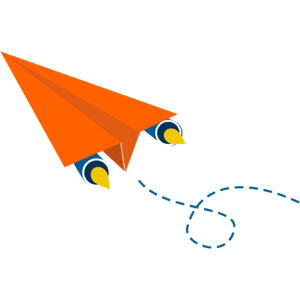| CFP closed at | June 30, 2019 23:06 UTC |
| (Local) |
Welcome to Scala.IO 2019
Scala.IO is the Scala conference in France and this year is the sixth edition!
Every year, more than 350 attendees from France and Europe at large gather at ScalaIO to learn and share insights about the Scala programming language, its ecosystem and functional programming in general.
Crafted with ❤ by a crew of passionate volunteers from the French Scala community, it takes place in the beautiful city of Lyon, capital of the French gastronomy.
See you this fall in Lyon!
CFP Description
This sixth edition will feature one day of workshops and two days of conferences. We welcome talks targeting all audiences from beginners to veterans and we aim for balance between content in French and content in English (please write your abstract in the same language you intend to use for the presentation).
We want to present content about the Scala programming language and its ecosystem and about functional programming in general. As every year, we also feature a few talks about other functional languages.
We like talks and workshops presenting new concepts, techniques and libraries, but we also dig for experience reports about how these are used in real-life projects.
This year, we have listed a few topics of interest we’d like to hear about, these are listed below. This list is purely indicative though, take it as a hint about the shape we want to give to this edition. If there is a topic you’re enthusiastic about but doesn’t fall into one of these categories, just go ahead a submit a proposal anyway!
Tooling and build systems
There has been many activity lately about tooling for Scala developers: IDE integration and LSP, alternative compilers aiming for speed, new innovative build systems (and also updates to our beloved sbt).
Help our attendees find their way in this rapidly evolving landscape.
Effect systems
It feels like ages have passed since the recent “free monad frenzy”. Scala developers now have a pretty large choice of solutions for abstracting over effects in a functional way with libraries like cats-effects or zio, to name a few.
How are these solutions used in production? How do they compare to one another? What advantages do they bring, and what are the pitfalls one should be wary of when using them? Tell us!
Taming recursion
Although being an almost 30 years old idea, recursion schemes now appear as a shiny new technique to the Scala community. Help our attendees discover the concept and show them all the cool things we can do with it.
Machine/Deep learning
With the impressive rise of Apache Spark in the past few years, Scala has been dubbed the “lingua franca of Big Data”. But is it still the case now that machine-learning, and especially its variant deep-learning, are all the rage?
Tell us about how Scala is used in these domains.
Distributed data processing
Scala is indeed an excellent tool for processing large amounts of data in a distributed environment. From batch-processing using Apache Spark to real-time streaming using Monix, FS2 & al., there is no shortage of solid tools in our distributed computing tool-belt.
Show our attendees around this vast landscape and help them pick the right tool for their job!
Guidance on giving a great Scala.IO talk
Focus on the interesting bits: think about what will distinguish your talk, and what will engage the audience, and focus there. There are a number of places to look for those interesting bits.
The ScalaIO audience is hungry to learn about how Scala techniques work in practice. What design have you applied, and to what areas? Did you use functional programming pattern, or DSLs, or fault-tolerant actors for large scale data processing? Teach us something about the techniques you used, and why we should consider using them ourselves.
Getting things done: How did you deal with large software development in the absence of wide developer adoption of pre-existing support that are often expected in larger commercial environments (IDEs, coverage tools, debuggers, profilers) and without larger, proven bodies of libraries? Did you hit any brick walls that required support from the community?
Be critical: It’s easy to write a rah-rah talk about how well Scala worked for you, but ScalaIO is more interesting when the talks also spend time on what doesn’t work. Even when the results were all great, you should spend more time on the challenges along the way than on the parts that went smoothly.
